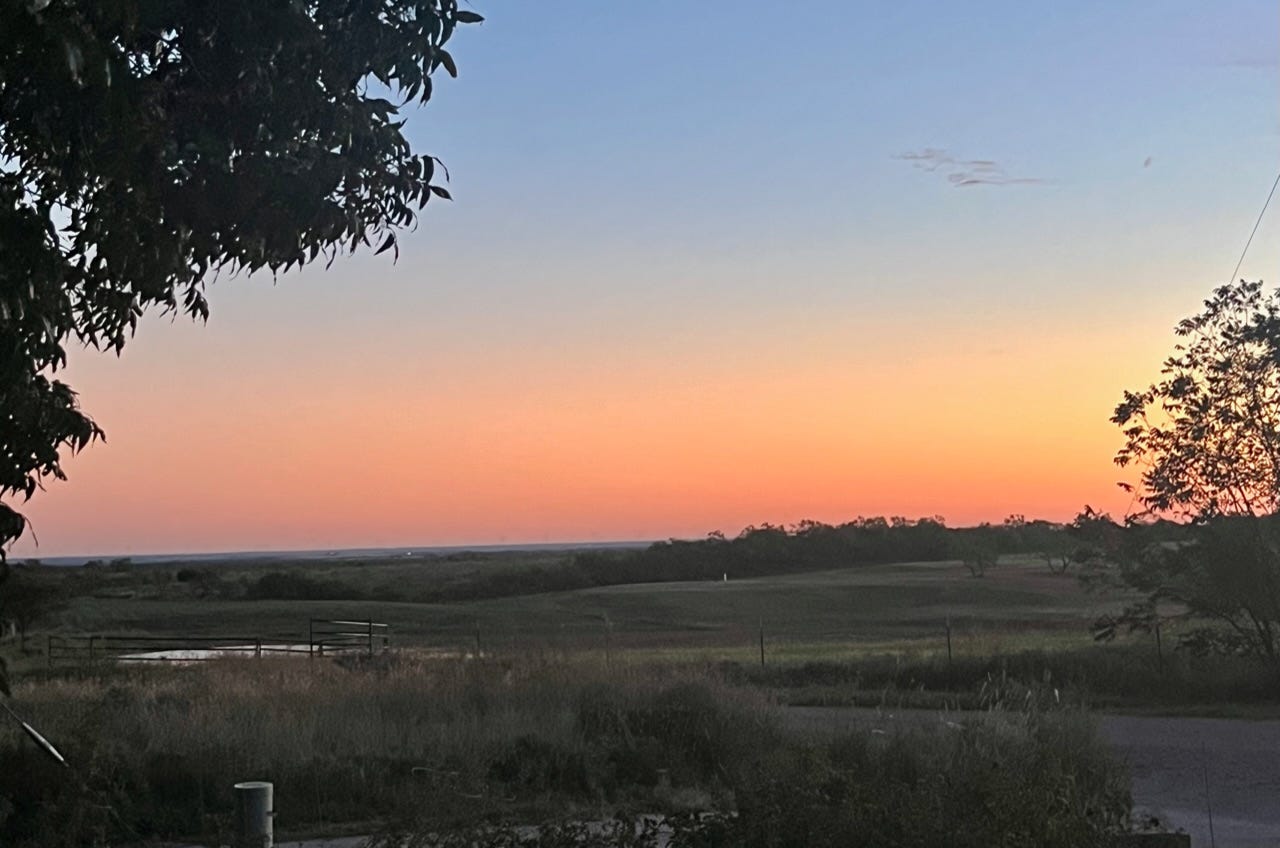Essays From West of 98: Courage of the Parochial, Part Two
Looking inward to improve the world at large
Part One of this essay can be found here.
I recently read a moving essay at Plough titled “Why Are We Lonely?” Author Joey Hiles insightfully addresses a pressing question but has a surprising culprit: democracy.
Fear not, this is no case against democracy. The essay points out that democracy unleashes individual potential like no other form of society. It creates the opportunity for prosperity and upward mobility, regardless of whether a person was born a “have” or a “have not.” There is a double-edged sword to this individual focus, though. When those forces set us free from our limitations, they also loosen the ties of good things, like family, home, and community. Democracy unlocks our potential, but it can set us adrift on a sea of success. We are more prosperous than ever, but searching for fulfillment that is elusive, creating a constant sense of loneliness and unhappiness in a society. I would encourage you to read the full-length treatment linked above.
Hiles has not unlocked a revolutionary theory. This was something observed by Alexis de Tocqueville almost 200 years ago. In his classic “Democracy in America,” Tocqueville saw the power of democracy and warned about the consequences of its power. He thought that a democratic society needed to combat those consequences by reinforcing institutions that would create healthy interpersonal ties. He saw local government, churches, and community and civic organizations as important tools of strength.
Tocqueville was correct, but America did not listen to him all that well. Over the last two centuries, the individualizing effects of our society have gotten worse. The Industrial Revolution, automobiles, and the Internet have had profound effects on our opportunities to prosper, but they also reinforce individualistic tendencies in countless ways. When social media arrived, it promised to soothe our need for connection and fulfillment. It encourages us to retreat from the world around us and seek virtual connection online, leaving us even more unfulfilled (and probably angry) than before.
My friend Jay Leeson was proud to a be a West Texan, a native of Hale County, and a Christian who studied at Asbury Seminary. Jay was a few years older than me and we disagreed on a few issues. We agreed on many more. We most particularly agreed on the need to promote affinity to place and the importance of rural America. Jay rose to regional and statewide acclaim for his advocacy on these topics in print and over the radio. He was unafraid to speak up for what was right, even when it created animosity and enmity from some powerful people in Texas. Jay was fond of saying that rural voters should be careful to vote for elected officials who cared about their impact on rural places, because “the more you vote against your place the less you have to come home to.”
Jay passed away in September after some health issues. His passing left a large hole in the roster of advocates for West Texas and rural America. Jay had actually met Wendell Berry during his seminary studies in Kentucky and, though I was moderately familiar with Berry before then, it was Jay’s encouragement several years back that led me to dive deeply into Berry’s writing. My brain has never been the same and I am forever grateful to Jay for that impact.
How do we face the sadness and darkness that seems to pervade the world today? How do we combat the loneliness and lack of fulfillment that human nature creates in an individualistic society? How do we reckon with the challenges faced by our rural places and elected officials who seem to care little?
I believe those answers are all the same. They are what Jay Leeson found important. They are what Wendell Berry prioritizes. They are what Tocqueville recommended when his book was published in 1835. We must strengthen our local institutions. Social media is a farce, a façade, and a toxic waste of time. National and state politics are a circus. Devoting our emotions to any of those things will leave us disappointed, unhappy, and probably fighting with our neighbor.
We must look inward and more parochial. We must work with our neighbor and view local government, churches, and civic/community organizations with a renewed vigor and an awareness of their importance to a society’s happiness. If we do that, we will be shocked how much we improve our community, our own mental well-being, and the world at large.
James Decker is the Mayor of Stamford, Texas and the creator of the West of 98 website and the Rural Church and State and West of 98 podcasts. Contact James and subscribe to these essays at westof98.substack.com and subscribe to him wherever podcasts are found.


